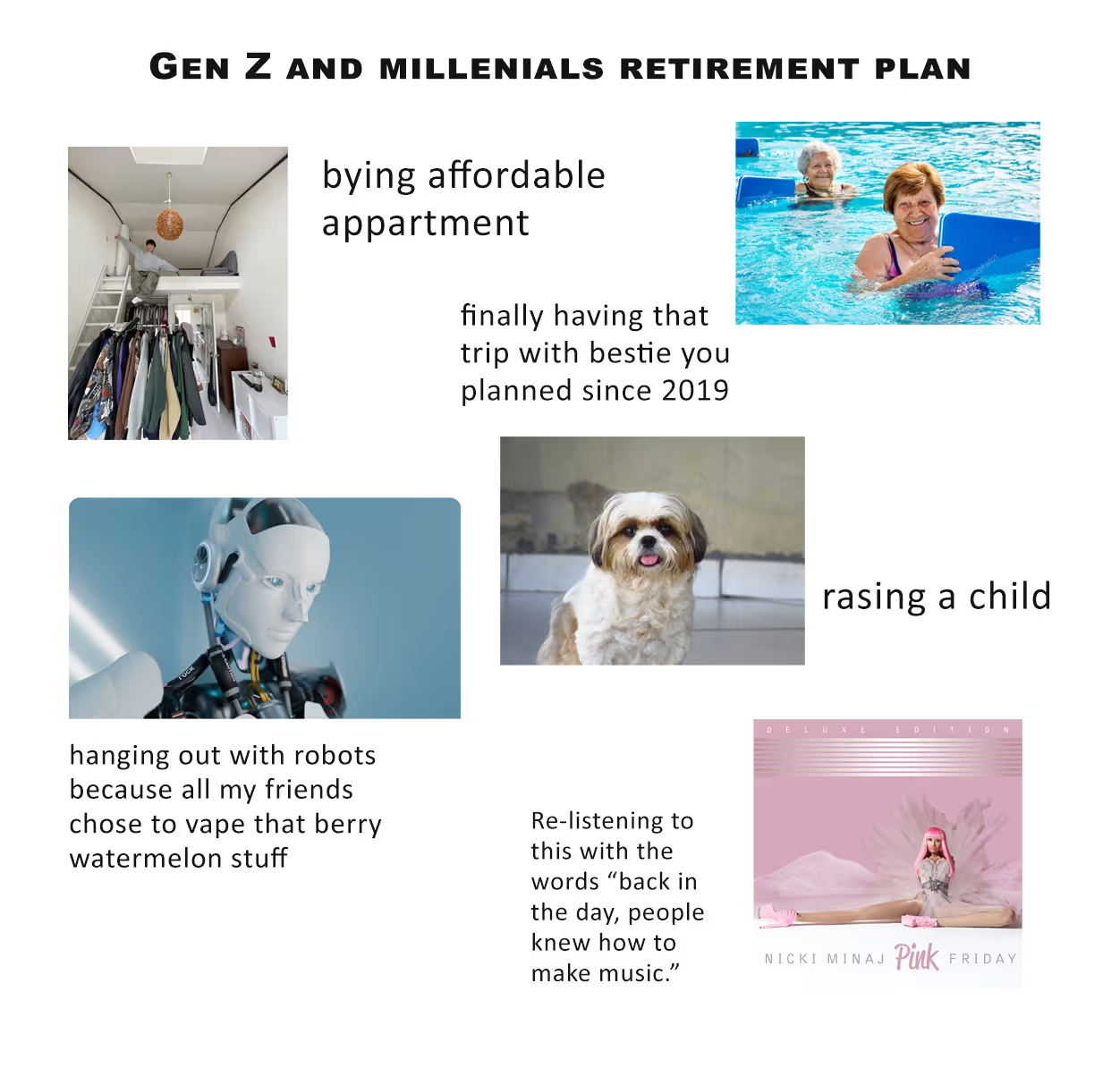- Connect your daily tasks with your long-term goals
- Keep knowledge and goals in one place
- Focus on consistency
- Have a plan to stay focused
- What Is Burnout? What Is Laziness?
- 6 Signs You’re Burnt Out
- Why the Confusion Persists
- How to Take Action
- Preventing Burnout, Embracing Rest
- The Power of a System
- Plan: Lay the Foundation
- Act: Make It Happen
- Refine: Keep It Sharp
- Personalization Prompt: Design Your System
- Yaeji
- Oklou
- Aphex Twin
- Tycho
- Afrika Bambaataa
- Final Chord
- Why Breaks Matter
- Try these five strategies
- Own Your Workday
- The Birth of Digital Calendars
- The Rise of Web-Based Calendars
- How Timestripe Change the Way We Plan
- What’s Knowledge Sharing All About?
- Why Sharing Knowledge Pays Off
- The Kinds of Knowledge Worth Sharing
- How to Make Knowledge Sharing Happen
- Tackling Roadblocks to Knowledge Sharing
- Why Rewarding Yourself for Achievements Actually Works
- Wrapping It Up: Try Timestripe for Smarter Sharing
- The Ultimate Goal
- Major Milestones
- Specifing Tasks
- The Logical Sequence
- Making a Schedule
- Introduction
- What Is a Digital Mind Garden?
- Obsidian – Your Garden’s Foundation
- Timestripe – Your Garden’s Rhythm
- Are.na – Your Garden’s Muse
- Bringing It All Together
- The Myth of Multitasking
- The Toll on Your Brain
- Why Single-Tasking Wins
- How to Break the Multitasking Habit
- The Path to Clarity
- Why Gen Z is Embracing Micro-Retirement
- Challenges of Micro-Retirement
- Benefits of Micro-Retirement
- The Science of Overthinking
- Pathways to Decisive Action
- The Decision Journal
- Timeless Takeaways
- Planning mistakes
- Lessons from Patrick
- Laptop Stand
- Pomodoro Timer
- Keyboard and Mouse
- Fidget Toy
- Desk Lamp
- Challenges of Remote Work
- Remote by Design
- Gitlab & Automattic Radical Transparency
- Effective Approach
- The Shift from Quiet Quitting
- Tips for a manager
- Why Employers Should Worry
- How Companies Can Stop the Bleeding
- Adapt or Watch Talent Go
- The Benefits of Reverse Mentoring
- How to Implement Reverse Mentoring
- What's the Conclusion
- Intro
- Why managers become seagulls
- Is it really that bad
- What to Do if a Seagull Has Built a Nest in the Office
- From teams' perspective
- Push for Clarity in Tasks
- Point Out Managerial Mistakes
- From upper management perspective
- What to do if the seagull is you
- How to prevent "seagulling"
- Writing a List
- Emile
- How Music Affects Our Brain
- What Types of Music Work Best
- Exploring Noise
- Why Some People Can't Work with Music
- Finding the Balance
- Why Gamified Summer Goals Work
- Try This Summer Guide
- Summer Challenge Prompt
- Time-blocking
- Definition of Time Blocking
- Benefits of Time Blocking
- Meet Dan
- How Does Time Blocking Work
- Meet Sarah
- Using Timestripe for Time Blocking
- Recommendations for Effective Time Blocking
- Common Time Blocking Mistakes and How to Avoid Them
- Advanced Time Blocking Strategies
- My Five-Year Experiment with UTC
- Take Control of Your Time
- Why Bother With Weekly Planning?
- What Weekly Planning Actually Is
- Finding Your Sweet Spot
- How to Actually Plan Your Week
- Using Timestripe for Weekly Planning
- The Planning Mistakes That’ll Drive You Crazy
- Ready to Take Control of Your Week?
- The Metaphor Behind "Eating the Frog"
- The Core Concept and Its Origins
- Key Benefits
- Step-by-Step Implementation Guide
- What Are Smart Goals and Why They Actually Work?
- Breaking Down Smart Goals: It’s Simpler Than You Think
- S – Specific
- M – Measurable
- A – Achievable
- R – Relevant
- T – Time-bound
- Writing Your Smart Goals
- Pro Tips for Smart Goal Success
- Wrapping Up: Your Next Steps
- The Benefits of Celebrating Success
- The Dark Side: When Self-Rewards Backfire
- How Companies Exploit Your Reward System
- How to Reward Yourself the Right Way: 7 Proven Strategies
- Healthy Ways to Celebrate Success Without Breaking the Bank
- Building Your Personal Reward System
- The Psychology of Sustainable Self-Celebration
- Finding Your Reward Rhythm in 2025
- Focused Thinking
- Diffuse Thinking
- Integrating Two Ways Thinking
- The Stress Trap
- Making Deadlines Your Ally
- A
- B
- C
- D
- E
- F
- G
- H
- I
- K
- L
- M
- N
- O
- P
- Q
- R
- S
- T
- Horizons
- Collapse Lists
- Goals sorting
- Subgoals
- Recurring goals
- Filters
- Dividers
- Colour coding
- Calendar
- Rich text formatting
- Tags
- Sharing Options
- Embeds
- Spaces
- Boards
- Templates
- Climbs
- The Progress Centre
- Team View
- Comments
- Quick schedule
- Keyboard Shortcuts
- Fullscreen view
- Recent items
- Quick Edit Shortcut
- Search
- Insights
- Backgrounds
- Dark mode
- Integrations
- Google Chrome Extension
- Mobile app
- Overview
- Clock
- Task Management & Organization
- Collaboration Features
- User Experience & Design
- Unique Features
- Pricing
- Final Thoughts
- Compare
- Collaboration Features
- User Experience & Design
- Best For
- Why it Matters
- Common Pitfalls
- How Boards & Climbs help
- Step-by-Step Implementation
Micro-Retirement: How Gen Z is Redefining Career Paths

About 76% of young workers prioritize work-life balance over salary (according to the article “Gen Z Puts Work-Life Balance Ahead of Pay” from Newsweek, published on January 21, 2025).
This statistic has been circulating online for some time. What’s new is how Gen Z defines this balance.
Previously, we discussed the revenge quitting trend, where young professionals resist exhausting corporate cultures. Now, a new solution has emerged: Micro-Retirements.
To prevent burnout and enrich their lives with meaningful experiences while they’re still young and active, Gen Z is adopting the practice of taking micro-retirements every 3−5 years before returning to work.
Micro-retirement involves taking deliberate, extended pauses from professional commitments to pursue personal interests, travel, or focus on mental health. Unlike conventional retirement, which typically occurs after decades of uninterrupted work, micro-retirements are interspersed throughout a career, allowing individuals to rejuvenate and realign their professional objectives. These breaks can vary in length, often ranging from several months to a year or more.
Why Gen Z is Embracing Micro-Retirement
Mainly because for them the traditional idea of retirement is likely gonna play out more like this.

Several factors contribute to the growing popularity of micro-retirement among Gen Z professionals:
- Prioritization of Work-Life Balance: A significant portion of Gen Z places a higher value on achieving a harmonious balance between work and personal life than on financial compensation. This shift reflects a broader desire to avoid the burnout experienced by previous generations.
- Mental Health Awareness: With increasing recognition of mental health’s importance, many young professionals view micro-retirements as proactive measures to manage stress and prevent burnout. These intentional breaks provide opportunities for self-care and personal development.
- Desire for Diverse Experiences: Gen Z individuals often seek varied experiences beyond the confines of traditional employment. Micro-retirements enable them to explore new cultures, acquire different skills, and engage in passion projects, enriching their personal and professional lives.
All of this not only positively impacts the “early retiree” lifestyle but also perfectly aligns with the demands of modern corporate culture, which requires employees to have an open mind, a broad worldview, and the ability to easily and quickly adapt to various conditions and contexts.
Challenges to Consider
While micro-retirement presents appealing benefits, it also comes with potential challenges.
Financial Planning: Funding extended breaks requires careful financial management and savings strategies to ensure sustainability during periods without income. However, micro-retirement doesn’t necessarily mean completely stopping work. For example, one might leave a full-time office job but take on freelance or remote work in the same or a new field, making the transition more comfortable and staying connected to the professional world.
Career Progression: Frequent or prolonged absences may impact career advancement opportunities and require thoughtful reintegration into the workforce. Potential employers might view career gaps unfavorably, necessitating clear communication about the value and purpose of these breaks.
To stay relevant and ease the return to work, combining micro-retirement with learning new skills can be beneficial. This shift in activity can positively impact mental health and future employment prospects.
Benefits of Micro-Retirement
Embracing micro-retirement offers several advantages:
- Enhanced Productivity and Creativity: Stepping away from work responsibilities can lead to renewed energy and fresh perspectives, fostering increased productivity and innovative thinking upon return.
- Personal Growth: Time off allows individuals to pursue interests and hobbies, contributing to a well-rounded and fulfilling life.
- Improved Mental and Physical Health: Regular breaks can alleviate stress and reduce the risk of burnout, promoting overall well-being.
Most importantly, these experiences add more fun to life and provide a wealth of stories for future generations.
The remaining question is how to embark on such an experiment during times of economic uncertainty and rising living costs. However, when the future is uncertain, experimenting may be the best approach. So, go ahead and take the leap!
Read next
